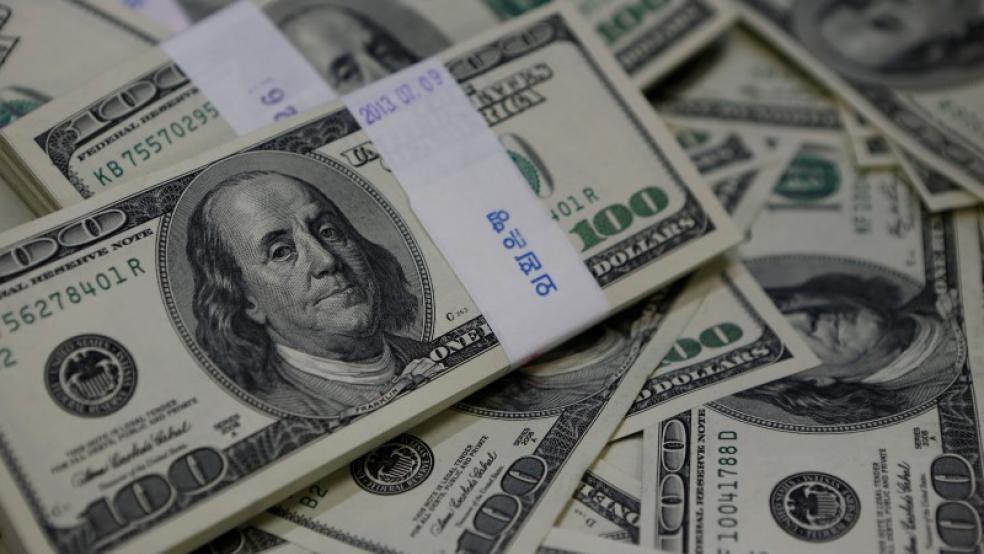NEW YORK (Reuters) - The U.S. dollar weakened against the euro for the first time this week on Thursday as investors were reluctant to enter new positions after a dramatic selloff over the past month, and as some U.S. economic data disappointed.
The greenback had gained earlier this week as U.S. and German government bonds recovered. The selloff sent the dollar as high of $1.1466 on May 15, from $1.0519 a month earlier.But nerves over whether the U.S. economy will rebound from recent weakness, and investors hurting from the dramatic dollar drop, are keeping some investors on the sidelines."People are reluctant to put on strong dollar positions," said Sebastien Galy, senior foreign exchange analyst at Societe Generale in New York.The dollar pared losses earlier on Thursday after data showed the four-week moving average of jobless claims fell 5,500 last week to 266,250. That was the lowest level since April 2000.But this was offset by other reports that showed weak factory activity in the U.S. mid-Atlantic region in May and an unexpected fall in U.S. home resales, also in May.The dollar last traded at $1.1125 against the euro.The euro was also bolstered against the dollar on Thursday by nascent signs of a recovery in euro zone activity, and a rise in German Bund yields which narrowed the spread over U.S. Treasuries.The composite flash PMI for the euro zone fell to 53.4 from 53.9, missing the 53.8 forecast in a Reuters poll. Despite the drop, data compiler Markit said, the euro zone economy is on track to grow 0.4 percent in the current quarter. "The narrowing of yield spreads over U.S. Treasuries is having an impact on euro/dollar," said Jeremy Stretch, head of currency strategy at CIBC World Markets.Part of the reason that euro gains will be limited is a very accommodative monetary policy stance by the European Central Bank. Earlier this week, board member Benoit Coeure said the central bank would accelerate the pace of money printing to buy government bonds over the next two months.The prospect of more euros flooding the market sent the common currency lower across the board earlier this week. (Additional reporting by Anirban Nag in London; Editing by Bernadette Baum and Alan Crosby)Dollar weakens against euro for first time this week

© Kim Hong-Ji / Reuters



